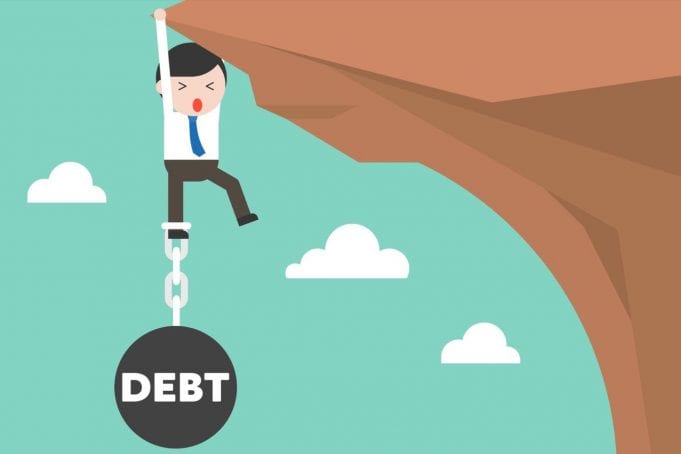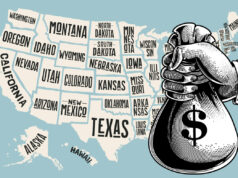As millions of workers remain on lockdown and businesses close their doors indefinitely, financial anxiety is on the rise amongst Americans and Canadians. With Canada predicted to head into a recession thanks to the economic effects of the Covid-19 virus, many consumers are worried about their finances and whether they will be able to keep up with their debt repayments.
The average debt in Canadian households remains a record high levels with families owing $1.78 for every $1 they earn. As many of us prepare (or already experience) a drop in income and financial uncertainty in the future, here are a few ways you can stay on top of your debt while the world whether this storm.
1. Redesign Your Household Budget Now Using Your Expected Income
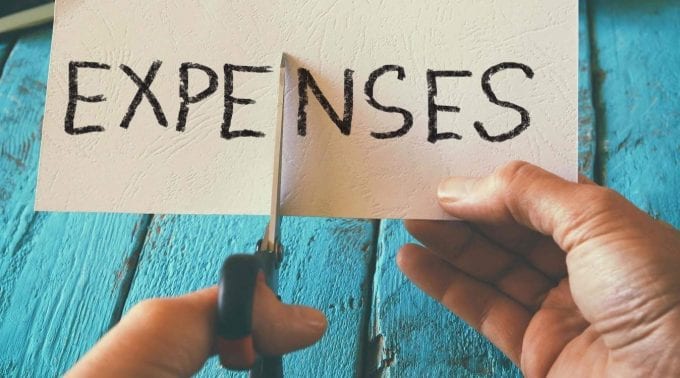
If there ever was a need to get on the budgeting train, it is now. Reduced income and increased expenses such as increased household grocery bills mean many families will have to watch how they are spending. Whether you have been made redundant or work in the affected hospitality sector, tightening up your household budget can make sure you make the cuts where you can to meet your debt repayments like mortgages, loan and credit card repayments.
Start with determining what your household’s new income looks like due to affected hours or job cuts. Be sure to account for proven income, such as salaries. Unemployment benefits or government assistance should only be included when you have applied, and your application has been approved. Next, narrow down your expenses to the bare necessities such as rental/mortgage payments, food, and utilities. Any additional spending should be up for debate and a cut from your budget. This narrows the discrepancy between your lowered income and the amount needed to make your debt repayments.
2. Consider Personal Finance If You Find You Are Still Falling Short
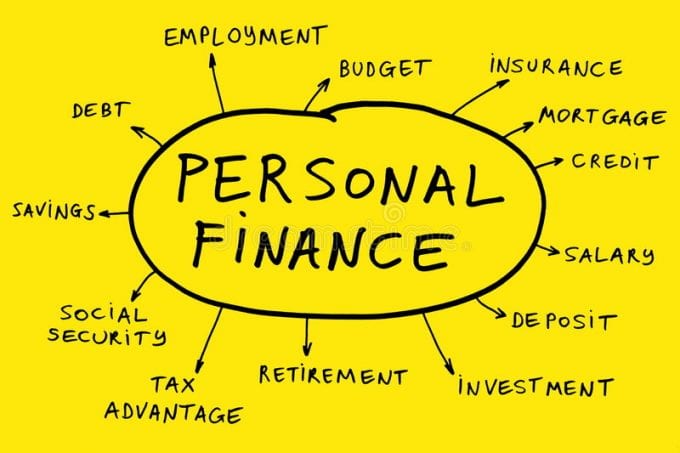
A majority of Canadians are more worried about their financial wellbeing than their physical well being, and it is no surprise. Unfortunately for some families, even with the strictest budget cuts, their income may not cover their bills. In these cases, it is time to look at covering the income gap. One option is securing a personal loan. With the current climate, the Government of Canada and many personal lenders like the National Bank of Canada and the Bank of Montreal are offering lines of credit and emergency loans to cover living expenses.
However, be advised each bank has its own specific lending terms so your best bet is to speak to your banking representative.
3. Seek Financial Advice From A Professional Or Personal Finance Tools

With all of the stress and uncertainty surrounding the pandemic, it may be difficult to objectively find a financial solution to staying afloat with your debt. Also, there are so many initiatives being launched daily as businesses and government organizations race to provide help to consumers. It is easy to get overwhelmed or lost in it all. This is where a financial planner/credit counselor and personal finance tools can help. If necessary, they can get you enrolled in a Debt Management Program or offer words of advice on the best way to consolidate your loans into an affordable amount. This is where a financial planner/credit counselor such as empireonecredit.com and personal finance tools can help. If necessary, they can get you enrolled in a Debt Management Program or offer words of advice on the best way to consolidate your loans into an affordable amount.
Personal budgeting tools such as Mint, You Need A Budget and KOHO helps you keep track of your spending- key in times of uncertain income. Apps like KOHO also allow you to consolidate all aspects of your finances, including spending, banking, and savings, which means you are better informed of your family’s financial position and ability to make debt payments.
4. Understand Your Options For Financial Support – And The Timeline

Just like other countries, Canada has introduced financial relief options aimed at helping consumers and small business owners get through these tough times. Whether you have lost your job, have decreased income or find yourself unable to work due to childcare obligations, there are financial relief options in place for you- you just need to narrow down which options fit you and your family’s situation.
The Canada Emergency Response Benefit (CERB) is aimed at those who have lost their jobs or cannot work due to the COVID-19 Outbreak and provides $2,000 per month for the next 4 months. Other programs like the Candian Wage Subsidy Or Employee Insurance are also available. Unlike the CERB, Employee Insurance can be paid for 14-45 weeks, depending on your insurable hours worked. This also comes with a 2 week waiting period after a 4-week application process, so it is important to take into account the timelines for each option. Most available financial support options are available on the Canada Revenue Agency website and require setting up an account.
5. Speak To Your Lender About Their COVID-19 Measures

Many credit providers and credit card companies are now offering options such as payment deferrals to help consumers throughout the COVID-19 crisis. The Canada Mortgage and Housing Corporation are now allowing consumers to defer monthly payments for up to 6 months while a number of credit cards have paused their rate increase. Even if you do not see any being advertised by your lenders, it is worthwhile giving them a call and enquiring about flexible payment options.
If you find there are limited options for you or you are still struggling to stay on top of your debt, securing a debt consolidation loan online may be an option. Based on a review of Prosper from Crediful, loan amounts can vary between $2,000 to $36,000, with interest rates between 5.99 and 36 percent. Your minimum credit score needs to be 640, and you also need a debt to income ratio of under 50 percent to qualify, although other lenders have varying ratio requirements.
6. Tap Into Online Income Streams To Supplement An Emergency Fund
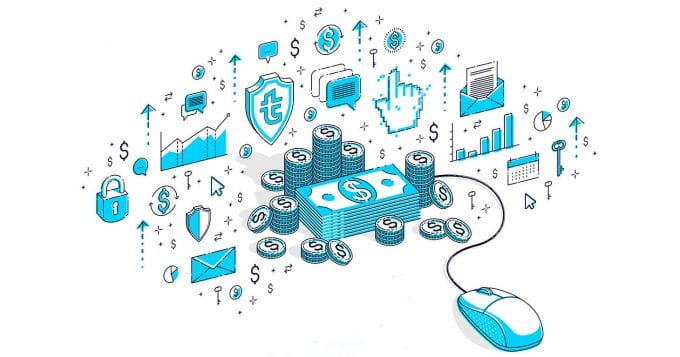
The importance of having an emergency fund cannot be understated in uncertain economic climates like these. Setting up an emergency fund provides a cushion for you to fall back on should your income stop or decrease or unexpected expense pop up. Sadly, only a quarter of Canadians have an emergency fund, according to a Bank Of Canada survey. For those that don’t and find themselves at home, online jobs can provide a small source of income.
Whether it is launching your own, becoming an online tutor, or reselling on eBay, the list to make money online is extensive. Not only does this bridge the income gap and help you stay on track with debt repayments, but it can also drastically reduce your reliance on credit cards in the coming months.
While the current events may seem overwhelming, there are options out there to prevent you from losing control of your debt. Your best bet is to do your research first and find out which ones will work best for you.

